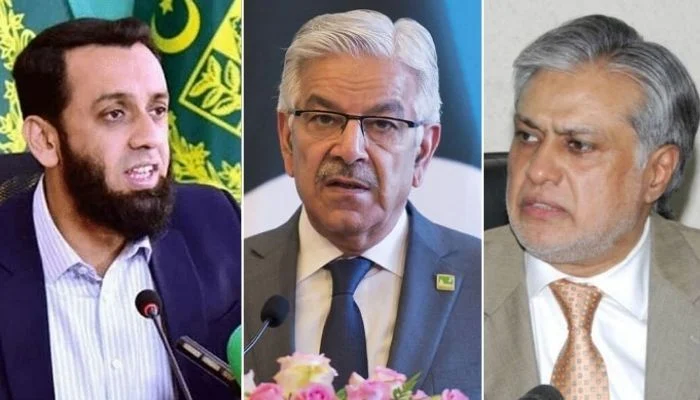Pakistan has strongly criticized India for exploiting the Pahalgam attack, which tragically claimed the lives of 26 tourists, to suspend the Indus Waters Treaty for domestic political gains, warning that New Delhi is attempting to “unleash a hydro war” without any evidence or investigation.
New Delhi has linked Islamabad to the attack without providing any substantial evidence and has taken a series of punitive measures to downgrade bilateral ties, including suspending the Indus Waters Treaty, revoking visas of Pakistani citizens, and closing the Wagah-Attari border crossing.
Pakistan has responded in kind to India’s actions and has warned of suspending the Simla Agreement, in addition to closing its airspace for Indian flights. Islamabad has denied any involvement in the attack and has offered to participate in a credible and transparent investigation.
Prime Minister Shehbaz Sharif, while condemning the unfortunate attack, has offered to participate in any neutral, transparent, and credible investigation into the incident.
Speaking to Geo News on Sunday, Defense Minister Khawaja Asif expressed his belief that India would gain nothing by violating the Indus Waters Treaty, as it is backed by international guarantees.
The World Bank brokered the Indus Waters Treaty, which India and Pakistan signed in 1960. By suspending the treaty, India could potentially restrict the flow of rivers into Pakistan, cutting off the country’s water source for irrigation and human consumption.
“Where will India take the water? It can neither divert nor stop it,” he added. The defense minister noted that India has not responded to Pakistan’s offer to hold an international probe into the Pahalgam incident, reiterating that Islamabad is ready to participate in a transparent investigation.
He stated that the entire Pakistani nation is united with its armed forces and will deliver a strong response to the Modi government, similar to the response given during the Pulwama incident.
He cautioned that a conflict between two nuclear powers would pose a significant threat to regional and global peace.
However, “if things escalate, no one can stop us,” he warned, adding, “if Modi chooses to escalate tensions, we will chase him all the way home.”
He accused Modi of spreading false propaganda, repeating the tactics used during the Pulwama incident. However, he affirmed that Pakistan is strong enough to respond effectively.
Separately, Minister for Information Attaullah Tarar briefed foreign journalists on India’s provocative measures, stating that Pakistan has the capability to respond effectively to any Indian misadventure with full force and might, as demonstrated in the past.
“It seems to me the whole episode was done for one of the most valuable resources these days, and that is water,” he said, condemning India’s unilateral action to suspend the Indus Waters Treaty.
He described the suspension of the treaty as an “immature and childish” act on India’s part.
He cited principles of public international law, stating, “when there are two parties in a treaty, and they agree with mutual consent… that treaty cannot be revoked, suspended, and terminated unilaterally. It has to be done mutually.”
He warned that targeting Pakistan’s water, which is crucial for its agrarian economy, would be an “act of usurpation, an unfair and unjust measure.”
Tarar affirmed Pakistan’s stance, stating, “The prime minister and National Security Committee have made it very clear that any attempt to divert or stop water of Pakistan will be responded with full might and power.”
The minister cautioned India against misinterpreting Pakistan’s stance as weakness.
“Let me reiterate they should not at all take our words as weakness. Pakistan has always defended itself and will continue to do so,” he said, referring to Pakistan’s response post-Pulwama.
Referring to the Pulwama incident of February 2019, the minister said India has tested “our patience in the past, and we passed it with flying colors, and India was left to regret.”
Mentioning the attack on the Pakistani High Commission in London, Tarar said it is India’s extremist ideology that prompts its people to attack our foreign missions. Tarar stated that India had pre-conceived notions about the Pahalgam incident, possibly to pin the blame on Pakistan.
He asserted that all allegations by India against Pakistan make no sense. He highlighted that the Pahalgam area is more than 150km away from the Line of Control, and India has not provided any single piece of evidence to corroborate its arguments.
Dar Briefs World
Meanwhile, Deputy Prime Minister and Foreign Minister Ishaq Dar spoke with British Foreign Secretary David Lammy and Chinese Foreign Minister Wang Yi to brief them on India’s unilateral actions and the regional situation, the Foreign Office reported.
During his conversation with Lammy, Dar highlighted India’s baseless propaganda, false accusations, and its illegal move to suspend the Indus Waters Treaty — a clear violation of international obligations.
He reiterated Pakistan’s resolve to defend its national interests while promoting peace and stability. Lammy stressed the need for de-escalation through dialogue, while Dar conveyed Pakistan’s readiness for an independent and transparent investigation.
In his call with Wang Yi, Dar expressed gratitude for China’s consistent support and rejected India’s unilateral measures and propaganda. Both leaders reaffirmed close coordination and their commitment to maintaining regional peace and stability.



